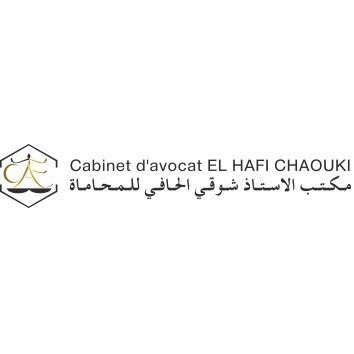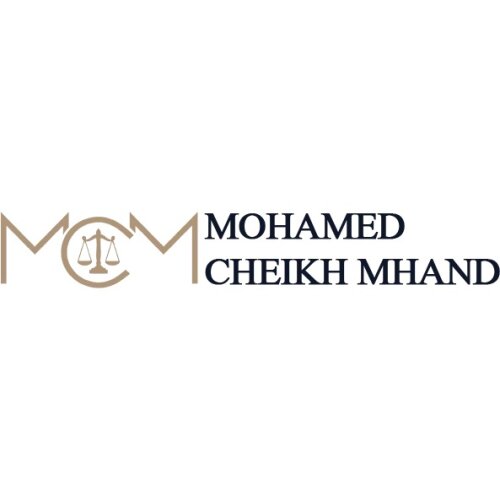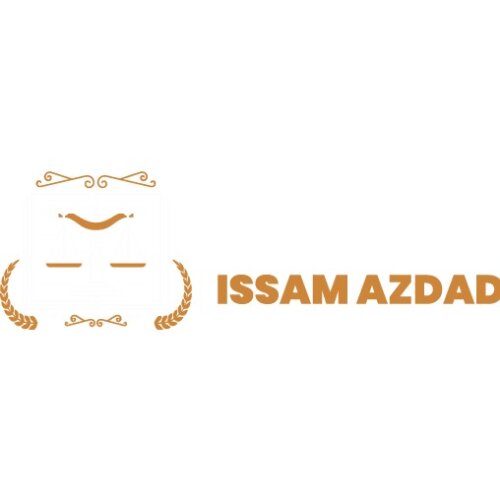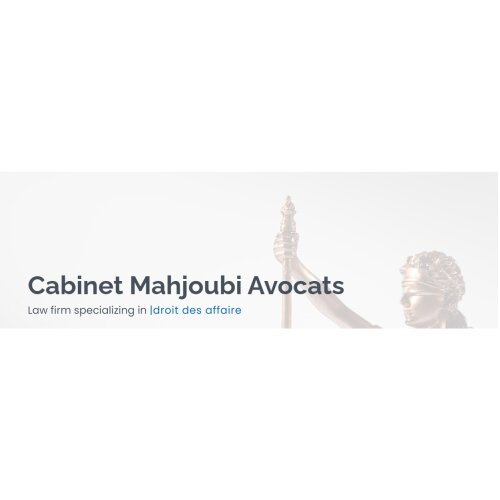Best Public-Private Partnerships (PPP) Lawyers in Tangier
Share your needs with us, get contacted by law firms.
Free. Takes 2 min.
List of the best lawyers in Tangier, Morocco
About Public-Private Partnerships (PPP) Law in Tangier, Morocco
Public-Private Partnerships (PPP) are collaborative arrangements between government entities and private sector companies to finance, construct, and operate projects that provide public services or infrastructure. In Tangier, PPPs have become increasingly crucial as the city continues its rapid expansion and development, especially in sectors such as transport, energy, water, and social infrastructure. Moroccan law provides a legal framework for PPPs to ensure transparency, accountability, and the balance of interests between public authorities and private partners.
Why You May Need a Lawyer
Navigating PPP projects in Tangier involves complex legal requirements and contractual obligations. Here are some common situations where consulting a lawyer is advisable:
- Structuring and negotiating project agreements between public and private sector parties
- Understanding Moroccan PPP laws and their application to your specific project
- Managing bidding and procurement processes to avoid legal pitfalls
- Addressing regulatory and compliance issues
- Resolving disputes that arise during the course of the partnership
- Advising on risk allocation, financing, and guarantees
- Ensuring proper transfer of assets at the end of the project lifecycle
- Dealing with cross-border investment and tax implications for foreign investors
Legal counsel can help ensure your investment is protected and your project complies with all local laws and regulations.
Local Laws Overview
Morocco adopted a specific law regulating PPPs in 2014 (Law no. 86-12) and updated it in 2021 to expand its scope. Key aspects important for PPPs in Tangier include:
- Definition of PPP contracts: PPPs in Morocco are formal agreements with durations typically between 5 and 30 years, involving design, financing, construction, and operation of public infrastructure or services.
- Bidding process: PPP projects must follow a transparent and competitive selection process managed by the relevant public authority.
- Risk allocation: The law requires a fair distribution of risks between public and private partners to maximize project value and efficiency.
- Contract approval: Major PPP agreements undergo approval from the relevant governmental bodies before being signed.
- Dispute resolution: The law permits the use of alternative dispute resolution methods, including national and international arbitration.
- Local content: Projects may have requirements regarding local workforce employment and use of local suppliers.
- Monitoring and reporting: Public authorities are responsible for monitoring contract performance and ensuring compliance with agreed terms.
Additional regulations at the municipal or regional level in Tangier may also apply to particular sectors or types of infrastructure projects.
Frequently Asked Questions
What types of projects are usually delivered through PPPs in Tangier?
Typical PPP projects in Tangier include transport infrastructure (roads, ports, rail), water and sanitation facilities, energy generation and distribution, public buildings, and tourism development.
Who can participate as a private partner in PPP projects?
Both Moroccan and foreign companies can participate, provided they meet technical and financial criteria set out in the tender documents and comply with Moroccan laws.
Is there a minimum project size or value for PPP contracts?
The law does not set a strict minimum threshold, but PPPs are typically used for mid to large-scale projects where significant investment and risk-sharing are required.
What is the typical length of a PPP contract in Morocco?
PPP contracts usually last between 5 and 30 years, depending on the project’s nature, financing requirements, and expected lifespan.
How are risks shared between the public and private sectors?
The risk allocation depends on the contract, but the law seeks a fair distribution to ensure both sides are incentivized to perform efficiently while protecting the public interest.
Can PPP contracts be renegotiated once signed?
Renegotiation is possible in certain circumstances, such as unforeseen events or substantial changes in underlying conditions, but must follow legal and contractual procedures.
Are there special tax or investment incentives for PPP projects?
Some projects, especially those serving public interest or in priority sectors, may benefit from incentives such as tax breaks, customs exemptions, or facilitating procedures for land acquisition. These incentives are granted on a case-by-case basis.
What dispute resolution mechanisms are available?
Most PPP contracts provide for negotiation, mediation, or arbitration, including the option for international arbitration in some cases, to resolve disputes efficiently.
How are PPP projects regulated and supervised?
Regulation and supervision are primarily managed by the relevant sectoral ministry and the Inter-Ministerial PPP Committee. The local government plays a role for projects within Tangier’s jurisdiction.
What are the key steps to participate in a PPP tender in Tangier?
Interested parties should regularly monitor official announcements, prepare technical and financial offers, comply with prequalification requirements, and submit bids as per the procurement schedule.
Additional Resources
For more information and support regarding PPPs in Tangier, consider contacting or consulting the following:
- Moroccan Ministry of Economy and Finance - PPP Unit
- Tangier-Tetouan-Al Hoceima Regional Investment Center
- Local Chamber of Commerce, Industry, and Services
- Moroccan Agency for Investment and Export Development (AMDIE)
- Relevant sector ministries depending on your project type (e.g., Ministry of Equipment, Transport and Logistics, Ministry of Energy)
- Professional law firms and legal advisors specializing in infrastructure or commercial law in Morocco
Next Steps
If you are considering a PPP project in Tangier or are already involved in one and need legal advice, here is how to proceed:
- Clearly define your business objectives and the nature of the partnership you seek
- Conduct preliminary research to understand the project’s requirements and the applicable legal framework
- Gather all relevant documentation and information about your prospective PPP project
- Consult with a lawyer or legal expert who specializes in PPPs and Moroccan commercial law
- Engage early with local authorities, investment centers, and regulatory bodies to clarify procedural steps
- Prepare for tender submissions or negotiations with the help of specialized advisors
- Regularly monitor legal and regulatory updates that may impact your project
Seeking the advice of a knowledgeable lawyer from the outset can help you avoid costly mistakes, meet all legal requirements, and set a strong foundation for your partnership in Tangier, Morocco.
Lawzana helps you find the best lawyers and law firms in Tangier through a curated and pre-screened list of qualified legal professionals. Our platform offers rankings and detailed profiles of attorneys and law firms, allowing you to compare based on practice areas, including Public-Private Partnerships (PPP), experience, and client feedback.
Each profile includes a description of the firm's areas of practice, client reviews, team members and partners, year of establishment, spoken languages, office locations, contact information, social media presence, and any published articles or resources. Most firms on our platform speak English and are experienced in both local and international legal matters.
Get a quote from top-rated law firms in Tangier, Morocco — quickly, securely, and without unnecessary hassle.
Disclaimer:
The information provided on this page is for general informational purposes only and does not constitute legal advice. While we strive to ensure the accuracy and relevance of the content, legal information may change over time, and interpretations of the law can vary. You should always consult with a qualified legal professional for advice specific to your situation.
We disclaim all liability for actions taken or not taken based on the content of this page. If you believe any information is incorrect or outdated, please contact us, and we will review and update it where appropriate.














